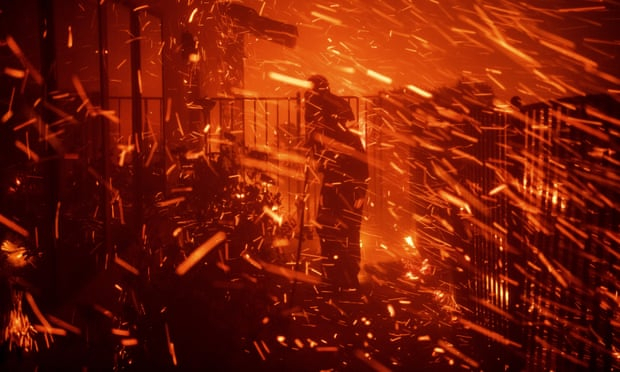For more than 40 years, the word's scientists have warned of a looming climate crisis, and yet so far, their cries have been met with little attention and even fewer changes.
Now, in the throes of a global emergency, with the echoes of their foresight gradually fading, experts have no choice but to try, try again.
"Scientists have a moral obligation to warn humanity of any great threat," says environmental scientist Thomas Newsome from the University of Sydney.
"From the data we have, it is clear we are facing a climate emergency."
Two years after authoring one of the most talked about climate papers - signed by the largest international group of scientists ever - Newsome and his colleagues have penned another urgent warning to the world.
Encouraged by the recent global surge in environmental concern, their paper explores four decades-worth of publicly available data, covering energy use, surface temperature, population, deforestation, polar ice, fertility rates, and, of course, carbon emissions.
Published for the first time today, it's already gathered an impressive signatory that falls just short of the first, including scientists from more than 150 different countries.
"The climate crisis has arrived and is accelerating faster than most scientists expected," the authors write.
"It is more severe than anticipated, threatening natural ecosystems and the fate of humanity."
The conclusions are nothing new, but they drill home certain solutions and troubling signs, like our escalating meat production, tree loss, birth rates and carbon emissions.
Today, the world's human population is still increasing by roughly 80 million people per year and deforestation in the Amazon is once again on the up and up.
"Despite 40 years of major global negotiations, we have generally conducted business as usual and are essentially failing to address this crisis," says ecologist William Ripple from Oregon State University.
To stop the worst consequences of the climate crisis, the authors say we will need to reverse these trends and leave all remaining fossil fuels in the ground.
Instead, we should pursue renewable and carbon-capture technology, switch to more plant-based foods, and provide family-planning services to all people, especially girls and young women.
Wealthier countries will inevitably lead the way on these changes, the authors admit, but if the whole world is truly serious about a zero-carbon future, it's imperative that we also support poorer nations.
As society reigns in our own emissions, we must, at the same time, act quickly to stop and reverse habitat and biodiversity loss, allowing forests and other natural habitats to thrive and store carbon.
With these 'natural solutions' alone, the authors calculate we can meet a third of our Paris emission ambitions.
"Our goals need to shift from GDP growth and the pursuit of affluence toward sustaining ecosystems and improving human wellbeing by prioritizing basic needs and reducing inequality," the scientists argue.
That's obviously a massive turnaround from where most leaders are right now, but the good news is, if the world is successful, the wellbeing of human kind will fare much better, as will our only home here in the Universe.
As of late, things have been moving in an encouraging direction. Solar and wind power have risen over 300 percent in the past decade, fossil fuel divestment has reached more than $7 trillion US, and carbon pricing is slowly becoming more popular.
Not to mention the recent widespread action on climate from individuals, corporations and nations.
Nevertheless, the authors admit there's still lots to be done, especially if want to avoid an irreversible tipping point or the catastrophic "hothouse Earth", which could spiral well beyond our control.
"While things are bad, all is not hopeless," Newsome assures us. "We can take steps to address the climate emergency."
We just need to get those in power to listen.
BioScience
More about: #science
















































